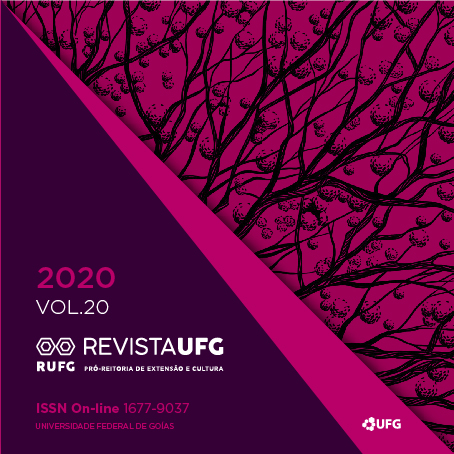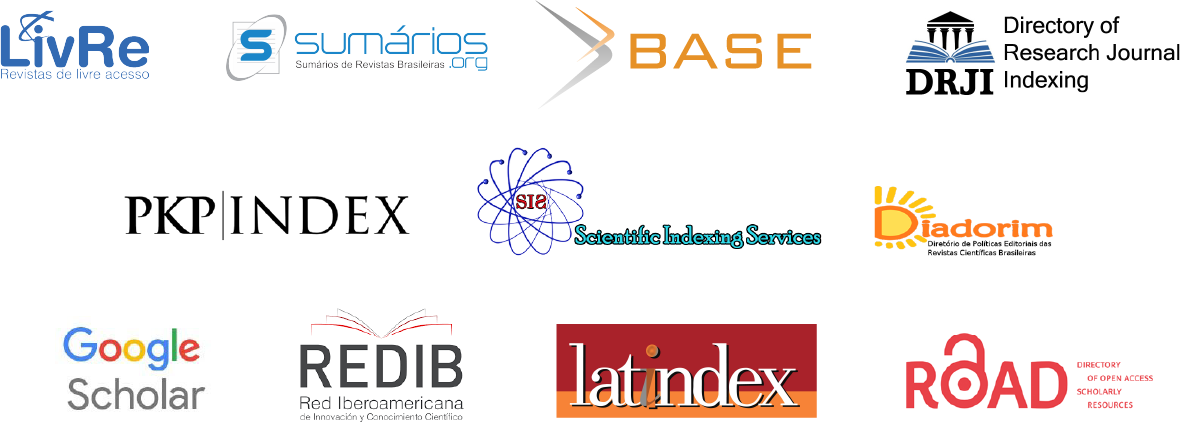Lives jurídicas como interface entre o meio acadêmico e a comunidade
DOI :
https://doi.org/10.5216/revufg.v20.65451Résumé
A experiência aqui relatada tem com pano de fundo a suspensão total das atividades acadêmicas na modalidade presencial, em razão Pandemia causada pela Covid-19. O mesmo cenário implicou diversas alterações legislativas no campo das relações do trabalho, em sua maioria temporárias (medidas provisórias). O objetivo deste trabalho é demonstrar que as diversas ferramentas tecnológicas podem fomentar o conhecimento e o debate acadêmico. O instrumento tecnológico central deste projeto foram as lives, realizadas por meio dos aplicativos do Instagram – as quais ocorreram durante os meses de abril e maio, com duração de 1 hora cada – e do YouTube – no dia 03 do mês de agosto do corrente ano, com duração de 04 horas. Tal escolha se justifica pela desburocratização do acesso, pois basta ter o horário e o perfil de usuário que se faz possível o acesso, permitindo a participação não apenas dos discentes, mas da comunidade em geral. Visando a disseminação de um conteúdo atual, nas lives no Instagram foram abordados temas relacionados às medidas provisórias, como: teletrabalho; responsabilidade social empresarial para enfrentamento e superação da pandemia; férias; direito do trabalho digital; extinção do contrato de trabalho em face da Covid-19; liberdade sindical; negociação coletiva; homologação de transação extrajudicial e direito à informação; entre outros temas. Enquanto na live no YouTube foi realizado o “I Seminário Internacional da ASRDT ‘Trabalho e Direito do Trabalho na pandemia: vivências e reflexões’”. Observou-se que todos os participantes (alunos, convidados, palestrantes) puderam se manifestar durante as lives por meio dos "comentários". Além disso, por meio da plataforma Moodle UFRGS, pode-se constatar uma alta adesão ao projeto por parte dos alunos que, em diversos momentos, fizeram questionamentos acerca das questões abordadas nas lives. A atividade no Instagram foi encabeçada pela professora Luciane Cardoso Barzotto, que contou com o apoio de seus alunos e ex-alunos do programa de Mestrado e Doutorado da UFRGS. Já a atividade no YouTube foi coordenada pelas professoras Luciane Cardoso Barzotto e Denise Fincato, com o auxílio de seus orientandos dos Programas de Pós-Graduação em Direito da UFRGS e da PUC/RS. Permitiu-se concluir pela efetividade no campo pedagógico de se diversificar as ferramentas de divulgação de conteúdo, acesso ao conhecimento e às mudanças legislativas trabalhistas tanto para os discentes como para a comunidade em geral no ambiente virtual aberto das mídias sociais.
Palavras-chave: Lives jurídicas. Experiência. Metodologia inovadora. Educação.
Téléchargements
Téléchargements
Publié-e
Comment citer
Numéro
Rubrique
Licence
A Revista UFG utiliza a licença Creative Commons CC-BY (4.0) - Atribuição 4.0 Internacional para periódicos de acesso aberto (Open Archives Initiative - OAI) como base para a transferência de direitos.
Os autores que publicam nesta revista concordam com os seguintes termos:
1) Os autores podem distribuir, remixar, adaptar e desenvolver sua obra, mesmo para fins comerciais, desde que dêem à UFG os devidos créditos pela criação original. Os autores podem copiar e redistribuir o material em qualquer meio ou formato.
2) Os autores são autorizados e incentivados a publicar e distribuir seu trabalho online (por exemplo, em repositórios institucionais ou em sua página pessoal) em qualquer momento antes ou durante o processo editorial, desde que seja feita referência ao local de origem da publicação, ou seja , endereço eletrônico/referência da Revista UFG.
3) Os autores dos trabalhos publicados na Revista UFG são expressamente responsáveis por seu conteúdo.
4) Todos os trabalhos submetidos à Revista UFG que possuam imagens, fotografias, figuras em seu corpo devem vir acompanhados de termo de cessão de direitos autorais do autor, do participante da imagem e, no caso de crianças, dos familiares das crianças expostas, com seus dados e assinatura.
Acesse o documento TERMO DE AUTORIZAÇÃO DE USO DE IMAGEM aqui.










